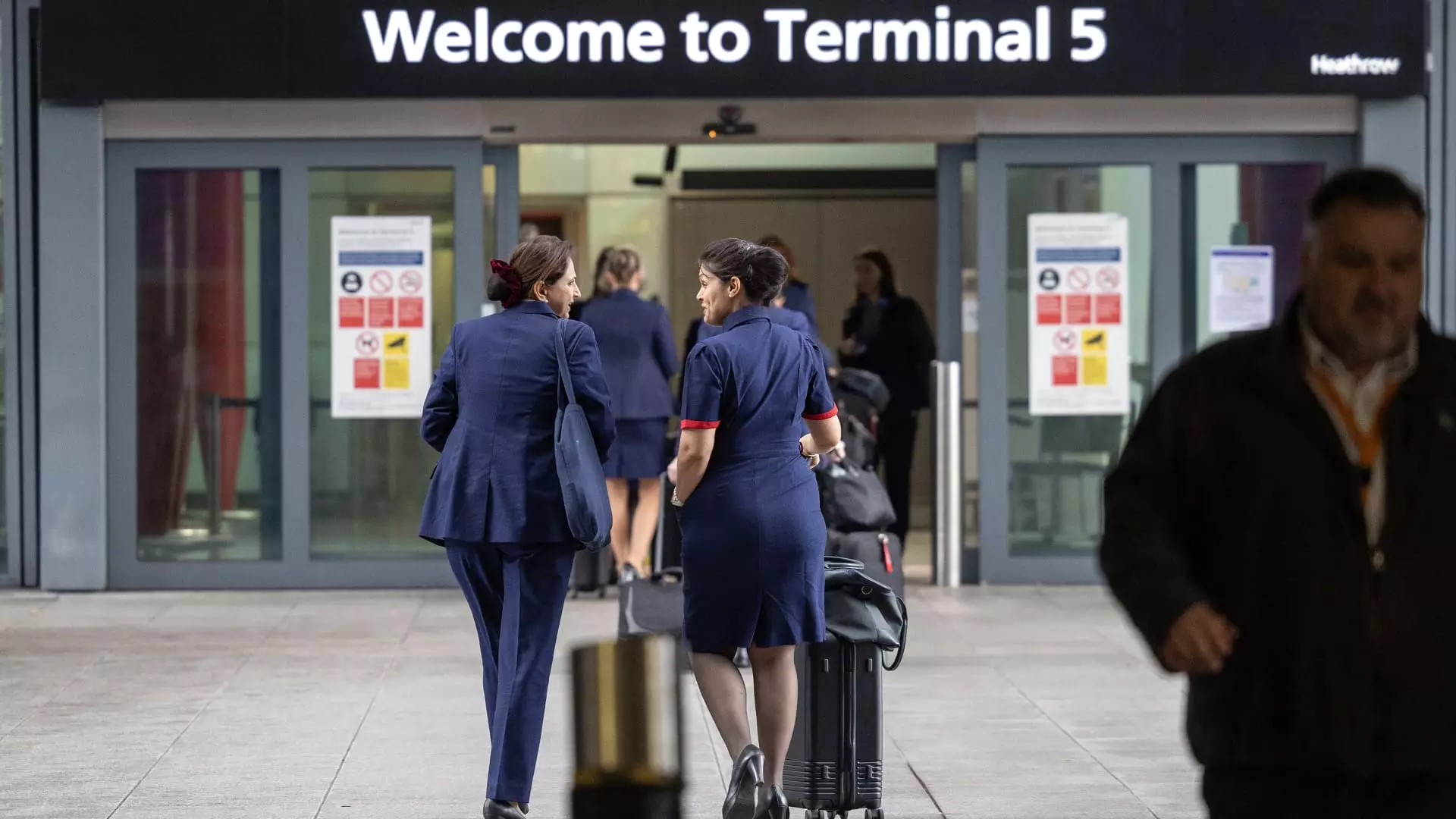On a challenging day for travelers, London’s Heathrow Airport—a major hub and the busiest airport in Europe—reopened after an unexpected and disruptive power outage originating from a fire at a nearby electrical substation. With over 800 flights cancelled on a seemingly regular Friday, the chaos that ensued raised fundamental questions regarding the resilience of infrastructure that millions depend on. This incident highlights not only the immediate confusion felt by travelers but also a broader, alarming pattern concerning the airport’s dependency on a single power source.
As news of the airport’s reopening spread, a sigh of relief mixed with apprehensions swept across the terminal. But the comforting thought of flights resuming was fleeting for many passengers who were stranded for hours, some days, waiting in limbo as airlines scrambled to restore their schedules. An experienced traveler, or anyone acquainted with the operational challenges of flying, could see that this event was more than just a minor hiccup; it exposed glaring vulnerabilities that could have dire consequences in similar situations.
Who Takes Responsibility?
As the initial chaos began to ebb, the criticism aimed at the airport’s management became increasingly vocal. Prominent figures like Willie Walsh, former CEO of British Airways and now leading the International Air Transport Association (IATA), wasted no time in laying blame where he saw fit. Walsh referred to the incident as a “total planning failure,” suggesting a deep-rooted negligence in the infrastructure governing one of the world’s most traveled airports. The assertion that travelers should not solely bear the burden of such failures is a sentiment many can empathize with. After all, are we not entitled to expect a certain level of reliability when we book a flight?
From a broader perspective, this incident forces us to scrutinize the financial and operational frameworks underpinning air travel. How can we, as consumers, trust a system where the very facilities that cater to our journeys operate on threads, susceptible to a single point of failure? The question, “Who should cover the costs of such disruptions?” brings us to an urgent need for regulatory reform. Those who wield power over infrastructure must be held accountable and prepared to implement measures that prevent similar disruptions in the future.
The Human Element
Amid the systemic failures and operational hurdles, the stories of the individuals caught in the turmoil should not be forgotten. Airports are not just nodes in a transport network; they represent the hopes, dreams, and lives of people traveling for myriad reasons. From urgent business meetings to family reunions, the impact of these delays ripples through lives and can lead to profound economic and emotional consequences.
One can’t help but sympathize with the emotions running high at hundreds of terminals that day. The agonizing wait endured by travelers on the ground is exacerbated by the frailty of human patience and the stark reality of modern travel. Anxiety began to rise among families, business travelers, and vacation-goers alike. The distress of individuals rendered voiceless amid corporate blunders reinforces the idea that the airport is, at its core, a hub of human stories—each needing careful consideration amidst operational protocols.
Moving Forward: The Call for Resilience
As airlines, utility companies, and governmental bodies regroup, one critical takeaway looms large—resilience. The emphasis must now shift from mitigating effects post-crisis to prioritizing preventative measures that can withstand unexpected shocks. National Grid’s promise to enhance the resilience of their operations is a start, but we need more than just assurances; we need actionable plans that will solidify the strength of essential infrastructures.
In the grand scheme of things, while the focus is temporarily placed on Heathrow’s handling of this current ordeal, there’s a larger conversation that must be had about the systemic failures in our infrastructure and the societal cost when they falter. Passengers should not have to shoulder the burdens of these systemic failures alone. It is imperative that we advocate for a more equitable distribution of accountability and care costs, pushing for systemic changes that ensure that their comfort and well-being remain a priority.
In sum, Heathrow’s recent turmoil is a critical reminder of the fragility of our interconnected systems and the importance of planning for a resilient future, both for infrastructure and for the people who rely on it.

